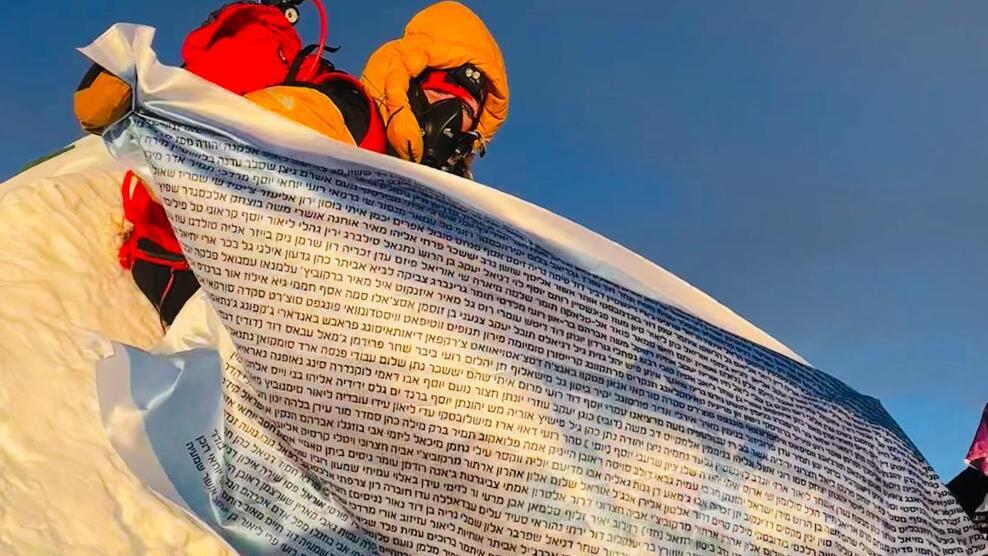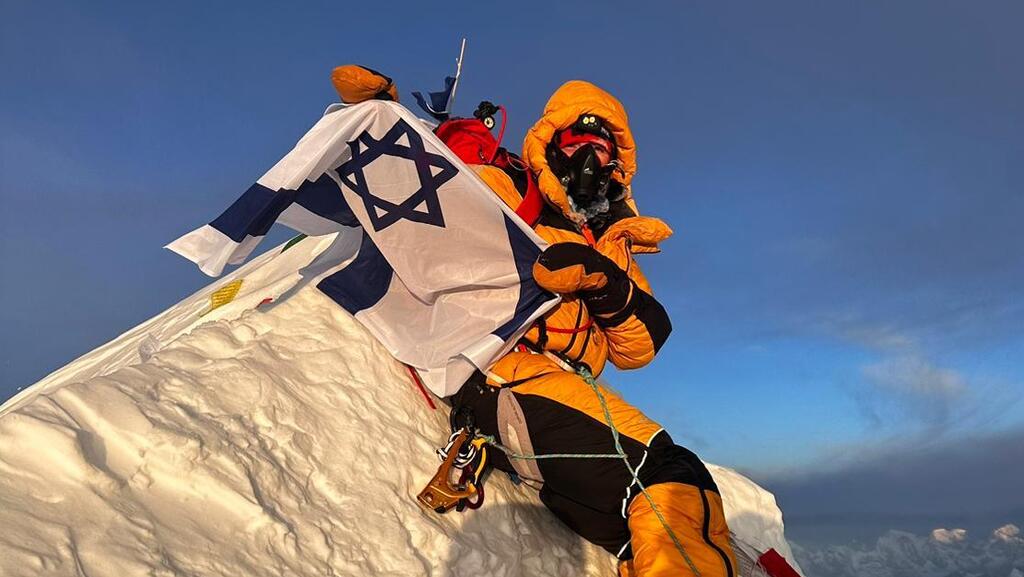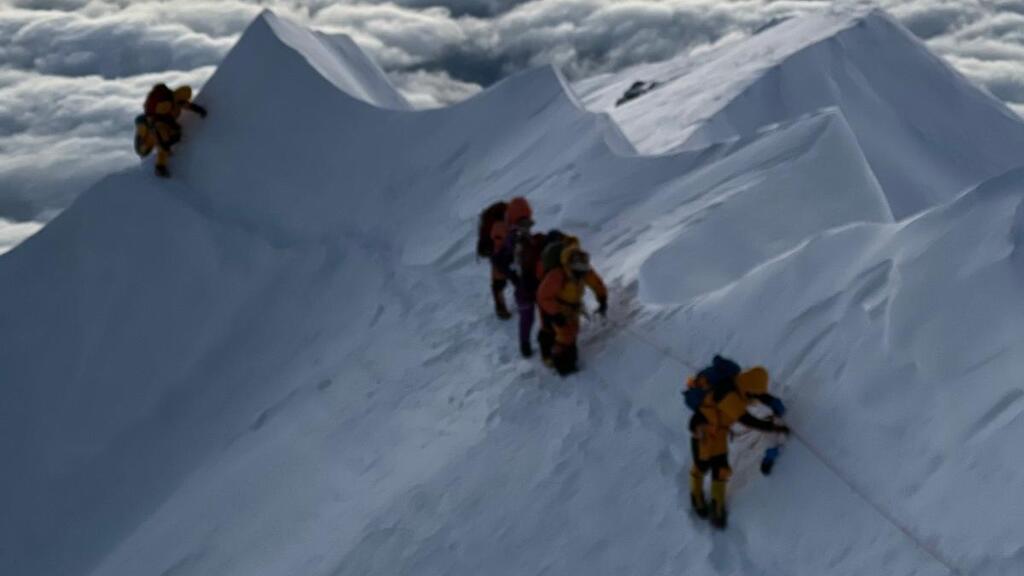Getting your Trinity Audio player ready...
One year after nearly dying while attempting to summit Mount Makalu (nearly 28,000 feet above sea level), the fifth-highest mountain in the world, Israeli mountaineer Danielle Wolfson reached the peak last week, raising the Israeli flag bearing the names of those killed since the start of the war.
"The account with the mountain is settled," Wolfson told Ynet. "The climb was extremely difficult, but I returned this year more determined and prepared. Our expedition started with eight climbers, but only three of us, along with nine Sherpas, made it to the summit."
"We faced days of heavy snow and strong winds reaching speeds of 60-70 km/h. Makalu is more technical than Everest, and tougher, with rock climbing elements. We had a narrow 11-hour window to climb from Camp 3 to the summit. I lost 12% of my body weight and will need time to process the achievement and recover."
Mount Makalu, located about 22 kilometers (13.5 miles) east of Everest on the Nepal-Tibet border, is considered a challenging climb among mountaineers. Since the season opened in April, 45 climbers have attempted to summit it; three died, and only seven succeeded.
Last May, Wolfson's life was saved in a dramatic rescue operation. Just 400 feet from Makalu's summit, the weather turned extreme, and Wolfson, along with a Sherpa climber accompanying her, got separated from their group, lost direction, and entered a fight for survival.
Wolfson, aiming to become the first Israeli woman to conquer the world's 14 highest peaks, was then part of the 14 Peaks Expedition. At some point, she and the Sherpa realized they could not reach the summit and their lives were in danger. They activated distress signals using a satellite device from MAGNUS International Search and Rescue, which sent a rescue team from the base camp. At over 8,000 meters, helicopters could not reach, and oxygen supplies were running low, making descent critical.
"As we descended, the nightmare began because the weather obscured the path," Wolfson recounted. "Everything was covered in snow, and we lost our way. After five hours, I realized we were on the wrong path and sent an SOS signal to MAGNUS." At one point, she even sent a message saying she was staying put and couldn't move, but eventually mustered the strength to continue downward.
Wolfson and the Sherpa managed, with great effort, to reach Camp 3 at 7,600 meters, a crucial point where they could breathe without oxygen tanks. They trekked under extremely harsh conditions, navigating high cliffs and ice pits. At Camp 3, they met with the rescue team and spent the night there. "I tied myself to my Sherpa so we could move together, and if one of us fell, the other could stop the fall," Wolfson explained.
After reaching base camp and being evacuated to a hospital in Kathmandu, she suffered from snow blindness in one eye and frostbite on three fingers of one hand. Her condition improved significantly within a day. "I'm being treated very well and I'm okay," she said at the time. "There's significant improvement, I'm in a completely different state, and I'm alive."
Last month, Wolfson summited Mount Kosciuszko (2,228 meters), the highest peak in Australia, becoming the first Israeli woman to conquer the highest mountains on all seven continents. Speaking with Ynet, Wolfson reflected on the change in how she's perceived as an Israeli.
"In the first week after October 7, many people from around the world wrote to me, but gradually I see the distance, the disconnection, some even stopped talking to me. This only drives me more to plant the Israeli flag at every camp, everywhere. Even if some people don't like us, that's okay, we're here, we have our country, and the flag will stand on every peak."





